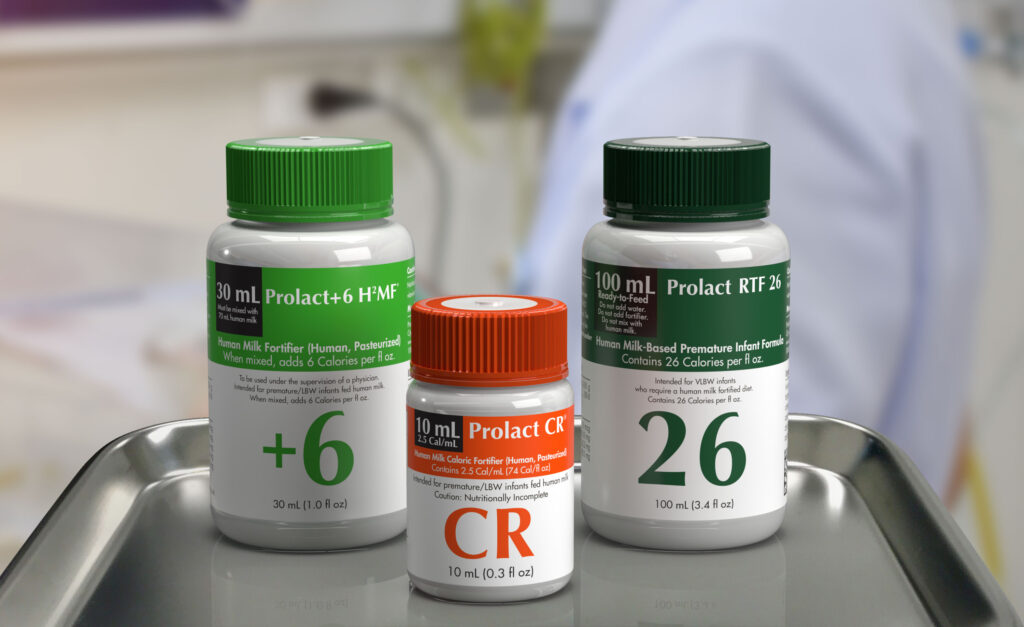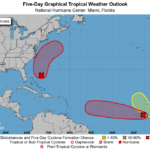SUNNY ISLE — In celebration of NICU Awareness Month in September, JFL has set a new standard for neonatal nutritional care for critically ill premature babies, the Gov. Juan F. Luis Hospital and Medical Center (JFL) is the first hospital in the U.S. Virgin Islands to adopt Prolacta’s exclusive human milk diet (EHMD) in the Neonatal Intensive Care Unit (NICU).
This 100 percent human milk-based nutritional supplement is proven to reduce complications and improve health outcomes, as opposed to cow milk-based, which studies have shown can trigger feeding intolerance and increase mortality in premature babies due to the risk of severe complications.1, 2, 3, 4
To make up for the growth missed in the third trimester, premature babies require 20 percent to 40 percent more calories, protein, and minerals than full-term babies.5 Prolacta’s products as part of an EHMD, comprising mother’s own milk and/or donor milk with Prolacta’s 100% human milk-based fortifiers, have fewer complications 1, 2, 3 and better growth outcomes,7, 8, 9, 10 which have been linked with healthy neurodevelopment in these fragile babies,11 giving them the best possible chance in life.
According to interim hospital CEO Dyma Williams: “JFL has always led the way in the Caribbean region for the care of our tiniest patients. We are proud to offer Prolacta’s products as we continue to innovate the way that we provide high-quality neonatal nutritional care for our NICU babies while their condition is most critical. We thank Prolacta for partnering with the JFL team to ensure better outcomes for every premature baby and their family.”
References
1. Sullivan S, Schanler RJ, Kim JH, et al. An exclusively human milk-based diet is associated with a lower rate of necrotizing enterocolitis than a diet of human milk and bovine milk-based products. J Pediatr. 2010;156(4):562-567. e1. doi:10.1016/j.jpeds.2009.10.040
2. Cristofalo EA, Schanler RJ, Blanco CL, et al. Randomized trial of exclusive human milk versus preterm formula diets in extremely premature infants. J Pediatr. 2013;163(6):1592-1595.e1. doi:10.1016/j.jpeds.2013.07.011
3. Abrams SA, Schanler RJ, Lee ML, Rechtman DJ. Greater mortality and morbidity in extremely preterm infants fed a diet containing cow milk protein products. Breastfeed Med. 2014;9(6):281-285. doi:10.1089/bfm.2014.0024
4. Assad M, Elliott MJ, Abraham JH. Decreased cost and improved feeding tolerance in VLBW infants fed an exclusive human milk diet. J Perinatol. 2016;36(3):216-220. doi:10.1038/jp.2015.168.
5. Hair AB, Peluso AM, Hawthorne KM, et al. Beyond necrotizing enterocolitis prevention: improving outcomes with an exclusive human milk-based diet. [published correction appears in Breastfeed Med. 2017;12 (10 ):663]. Breastfeed Med. 2016;11(2):70-74. doi:10.1089/bfm.2015.0134.
6. Lucas A, Boscardin J, Abrams SA. Preterm infants fed cow’s milk-derived fortifier had adverse outcomes despite a base diet of only mother’s own milk. Breastfeed Med. 2020;15(5):297-303. doi:10.1089/bfm.2019.0133
7. Huston R, Lee M, Rider E, Stawarz M, Hedstrom D, Pence M, Chan V, Chambers J, Rogers S, Sager N, Riemann L, Cohen H. Early fortification of enteral feedings for infants <1250 grams birth weight receiving a human milk diet including human milk-based fortifier. J Neonatal Perinatal Med. 2020;13(2):215-221. doi: 10.3233/NPM-190300. PMID: 31707377; PMCID: PMC7369034.
8. Hair AB, Hawthorne KM, Chetta KE, Abrams SA. Human milk feeding supports adequate growth in infants ≤ 1250 grams birth weight. BMC Res Notes. 2013;6:459. Published 2013 Nov 13. doi:10.1186/1756-0500-6-459
9. Huston RK, Markell AM, McCulley EA, Gardiner SK, Sweeney SL. Improving growth for infants ≤1250 grams receiving an exclusive human milk diet. Nutr Clin Pract. 2018;33(5):671-678. doi:10.1002/ncp.10054
10. Visuthranukul C, Abrams SA, Hawthorne KM, Hagan JL, Hair AB. Premature small for gestational age infants fed an exclusive human milk-based diet achieve catch-up growth without metabolic consequences at 2 years of age. Arch Dis Child Fetal Neonatal Ed. 2019;104(3):F242-F247. doi:10.1136/archdischild-2017-314547.
11. Bergner EM, Shypailo R, Visuthranukul C, et al. Growth, body composition, and neurodevelopmental outcomes at 2 years among preterm infants fed an exclusive human milk diet in the neonatal intensive care unit: a pilot study. Breastfeed Med. 2020. 15(5):304-311. doi:10.1089/bfm.2019.0210



